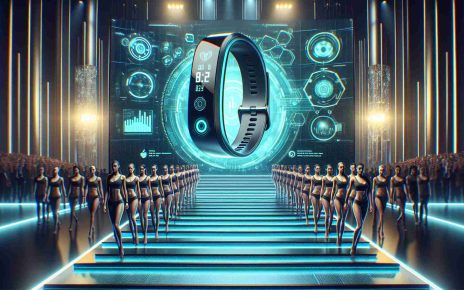- AI can predict breast cancer up to six years before diagnosis, offering new hope for early detection.
- The study analyzed over 116,000 mammograms, underscoring the potential of AI in healthcare.
- Approximately 20,000 new breast cancer cases are diagnosed annually in Poland, mainly in women over 50.
- Only 20% of breast cancer cases are diagnosed at an early stage, emphasizing the need for proactive screening.
- Monthly self-examinations and regular mammograms and ultrasounds are vital for early detection.
- Advancements in AI could greatly enhance personalized detection programs and improve outcomes for women.
Imagine a world where the swift power of artificial intelligence could potentially save lives by predicting breast cancer long before it manifests. In a groundbreaking study, researchers from the Norwegian Institute of Public Health, alongside teams from the University of California and the University of Washington, have harnessed AI to analyze over 116,000 mammograms, revealing astonishing insights into breast cancer prediction.
The research focused on detecting early signs of breast cancer in 1,607 women who participated in Norway’s breast cancer screening program from 2004 to 2018. The AI algorithm was remarkably proficient, identifying which breast was at risk four to six years before an actual diagnosis. With a striking performance, the AI indicated that the breast eventually affected by cancer had a risk score nearly double that of the healthier breast.
This innovative approach not only highlights the capabilities of AI in healthcare but also offers hope for personalized detection programs that could significantly improve outcomes for countless women. Breast cancer is an urgent concern, with approximately 20,000 new cases diagnosed annually in Poland alone, primarily affecting women over 50. Alarmingly, early-stage diagnosis occurs in only 20% of cases.
The takeaway? Proactive screening is crucial. Women are encouraged to perform monthly self-examinations and keep up with mammograms and ultrasounds for early detection. With the aid of advanced AI technologies, the fight against breast cancer is poised to become more effective than ever. Stay informed, stay vigilant, and empower your breast health!
Unlocking the Future of Breast Cancer Detection: The Role of AI
Revolutionary AI Algorithms Boost Breast Cancer Prediction
Recent advancements in artificial intelligence aim to transform breast cancer detection, with a focus beyond traditional methods. A pivotal study led by researchers from the Norwegian Institute of Public Health, in collaboration with the University of California and the University of Washington, analyzed over 116,000 mammograms. The findings not only underscore the AI’s potential in breast cancer prediction but also promise significant improvements in personalized healthcare strategies.
Key Insights from the Study:
– The AI demonstrated the ability to detect risks four to six years ahead of a clinical diagnosis.
– It provided risk scores that indicated the breast at risk could be nearly twice as likely to develop cancer compared to the unaffected breast.
– This technology could facilitate early interventions, potentially saving lives through earlier treatment and personalized patient care.
Pros and Cons of Using AI in Breast Cancer Screening
Pros:
– Increased Accuracy: AI algorithms can analyze mammograms with greater precision, potentially leading to fewer false positives and negatives.
– Early Detection: Enhanced predictive capabilities enable interventions before cancer fully manifests.
– Personalized Medicine: Risk assessments allow for tailored screening programs based on individual patient data.
Cons:
– Data Privacy Concerns: The use of large datasets raises questions about patient confidentiality and data security.
– Overdependence on Technology: Reliance on AI may diminish human oversight and expertise in clinical settings.
– Implementation Challenges: Integrating AI tools into existing healthcare frameworks may require significant resources and training.
Trends and Predictions for AI in Healthcare
As AI continues to evolve, here are some predictions:
– Enhanced Collaboration: Future healthcare models may involve collaboration between AI systems and healthcare professionals, ensuring informed decision-making.
– Broader Applications: Beyond breast cancer, AI’s predictive capabilities are expected to expand into various aspects of oncology and other medical fields.
– Regulatory Developments: As AI technologies become more commonplace, regulatory frameworks will evolve to ensure their safe and effective use in clinical practice.
FAQs About AI and Breast Cancer Detection
1. How accurate is AI in predicting breast cancer compared to traditional methods?
AI has shown to be significantly more accurate in predicting breast cancer by analyzing vast amounts of data and recognizing patterns that might elude human radiologists.
2. What role do patients have in the AI-driven screening process?
Patients are encouraged to remain proactive about their health by participating in regular screenings and monitoring any changes in their breast health, supplemented by AI insights.
3. Are there ethical concerns surrounding the use of AI in healthcare?
Yes, there are ongoing discussions about the ethical implications of AI, including data privacy, algorithm bias, and the need for transparency in how AI decisions are made.
For additional resources on breast cancer detection and AI advancements, visit American Cancer Society.



